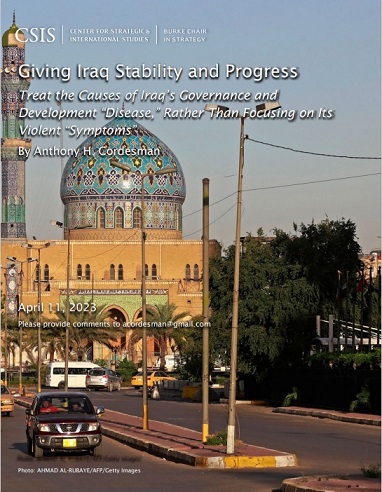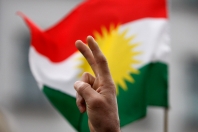If one looks back on the U.S.-led military intervention in Afghanistan in 2001, and the invasion of Iraq in 2003, the U.S. can claim many tactical successes in fighting terrorism and violent opposition movements. It also “won” one of its wars. While the U.S. was ultimately defeated in Afghanistan, it did win a kind of victory in its two wars in Iraq: first against hardline Sunni extremists and then against ISIS in Iraq. In broad terms, however, the American intervention failed in Iraq at the strategic and grand strategic levels. Other American military and counterterrorism efforts defeated its enemies in combat when, and if, the U.S. led or organized the fighting. The U.S. failed, however, to create a stable new government in Iraq, and to put the nation on a solid path to development. Like many other U.S. military victories, they treated Iraq’s violent symptoms and not the underlying disease of failed governance, failed development, and a lack of national unity. This analysis examines the causes and consequences of these failures in nation-budling. It looks beyond the mistakes U.S. made during and after its 2003 invasion. It also, however, examines Iraq’s history of failed nation-building: the legacy of Saddam Hussein, the cost to Iraq of his ambition and repression, of his invasion of Iran, and of his invasion of Kuwait. It looks at the overall cost to Iraq’s development that were imposed by Saddam’s rule, its wars from 1980 to 2003, and the fighting and political disorder that follows.
It does address the U.S. failures during and after the invasion in 2003, but it also examines the recent history and Iraqi causes of the challenges that now exist to effective Iraqi nation-building, their current nature and scope, and the practical problems Iraq now has in meeting them. It shows that only Iraq—and the Iraqis—can now meet most of these challenges. It then suggests options that may help Iraq move forward in spite of its deep political divisions and the sheer scale of the problems it now faces. It does not offer any easy solutions, but it does show that there may be workable ways forward.
To continue reading download the full report as PDF file
230411_Cordesman_Iraq_Stability
Source: CSIS
230411_Cordesman_Iraq_Stability.pdf (csis-website-prod.s3.amazonaws.com)








Comment here